Discover Sounds of SAND
Sounds of SAND

Sounds of SAND
Author: Science and Nonduality
Subscribed: 182Played: 4,724Subscribe
Share
© 2025 Copyright
Description
Sounds of SAND invites listeners into a contemplative journey through the infinite cycles of existence - from its raw beauty to its deepest mysteries, from its intricate complexity to its profound wonder. Through intimate conversations, thought-provoking interviews, poetic readings, and carefully curated music, we weave together ancient wisdom with lived experience, creating a tapestry of sound that honors the great questions of being
148 Episodes
Reverse
Dr. Cara Judea Alhadeff discusses her work and the profound ideas in her book Zazu Dreams: Between the Scarab and the Dung Beetle, A Cautionary Fable for the Anthropocene Era. She explores themes of dream consciousness, cultural and ecological extinction, radical symbiosis, and the concept of apocalyptic parenting as a strategy for social justice and ecological ethics, an antidote to petroleum parenting. The discussion digs into the interdisciplinary ties found in her stories, her collaborative projects, and the communal effort in creating sustainable futures. Dr. Alhadeff also shares her real-life experiences of living for almost a decade in a reclaimed school bus, 'The Love Bus', exemplifying the principles of radical mothering, reuse, collective creativity, and joy amidst systemic challenges.
Dr. Cara Judea Alhadeff is a professor and author of dozens of books and articles on art, philosophy, sexuality, climate justice, life-passion activism, and "petroleum parenting," including the critically-acclaimed Zazu Dreams: Between the Scarab and the Dung Beetle, A Cautionary Fable for the Anthropocene Era, and Viscous Expectations: Justice, Vulnerability, The Ob-scene. Alhadeff’s forthcoming book, Unlearning What We Think We Know (Vernon Press), will be performed during the World Affairs Conference. Her photographs/ performance videos are in private and public collection,s including San Francisco MoMA, MoMA Salzburg, Austria, the Kinsey Institute for Research in Sex, Gender, and Reproduction, and include collaborations with international choreographers, composers, poets, sculptors, architects, and scientists. She has been interviewed by The New York Times, San Francisco Chronicle, Pacifica Radio, NPR, and the New Art Examiner. Alongside Archbishop Desmond Tutu and Vandana Shiva, Alhadeff received the Random Kindness Community Resilience Leadership Award, 2020. In 2022, Alhadeff was nominated for a MacArthur Fellowship. Her theoretical and visual work is the subject of documentaries for international public television/ radio. A former professor of Critical Pedagogy & Performance at UC Santa Cruz and Founder of Radical Art in Action, Alhadeff teaches, performs, and parents a creative-zero-waste life. She and her family live and perform in their eco-art installation, a repurposed school bus. www.carajudeaalhadeff.com
Topics
00:00 Introduction to Dr. Cara Judea Alhadeff
01:35 Exploring 'Zazu Dreams'
04:01 Dreams and Cultural Extinction
06:08 Fractal Democracy and Radical Art
08:39 Sensory Consciousness and Neuroaesthetics
14:50 Interconnected Oppressions and Emancipation
28:05 Ancestral Lineage and Multiculturalism
34:00 Exploring Automatic Behaviors and Consciousness
34:50 Interbeing and Consumer Decisions
36:35 The Impact of Privilege and Capitalist Norms
38:06 Radical Symbiosis and Cultural Conditioning
39:21 Eco-Spirituality and Political Awareness
41:18 Apocalyptic Parenting and Deep Noticing
48:01 The Love Bus: A Journey of Reuse and Respect
54:40 Adapting to Change and Collective Creativity
57:55 Conclusion: Embracing Art and Language
Resources:
Dr. Cara Judea Alhadeff’s Website
ZAZU DREAMS: Between the Scarab and the Dung Beetle, A Cautionary Fable for the Anthropocene Era by Dr. Cara Judea Alhadeff
Zazu Dreams book-to-film animation adaptation
Fractal Flourishing: Jeremy Lent (Sounds of SAND Podcast)
Arab Jewish Mysticism: Hadar Cohen (Sounds of SAND Podcast)
Quantum Listening: IONE (Sounds of SAND Podcast)
Deep Listening: Pauline Oliveros
5Rhythms Dance
Rural Studio: Samuel Mockbee and an architecture of decency
Thrutopian Dreams: Manda Scott (Sounds of SAND Podcast)
An Ecotopian Lexicon edited by Schneider-Mayerson and Bellamy
Challenging Petroleum Parenting
Decolonizing Motherhood
Empire of Normality: Neurodiversity and Capitalism by Robert Chapman
Viscous Expectations: Justice, Vulnerability, The Ob-scene by cara judea Alhadeff
The Love Bus: Beauty & Waste In the Face of Climate Crisis
Facing Apocalyspe by Catherine Keller
Benjamin Lay: The first Revolutionary Quaker Abolitionist
Cara Judea Alhadeff, PhD, Promiscuous Crossings (Substack)
Email Cara
Support the mission of SAND and the production of this podcast by becoming a SAND Member
What does it mean to stay tender in times of unraveling?
In this live SAND Community Gathering (November 2025), SAND co-founders, Zaya and Maurizio Benazzo spend the hour with activist and author Kazu Haga. This conversation invites us into a collective inquiry about healing, justice, and the radical courage of vulnerability. Drawing from his work on restorative justice and Kingian nonviolence, Haga explores how compassion can live alongside grief, anger, and collapse—not as escape or appeasement, but as a disciplined, relational practice of staying with the pain of the world.
Topics:
00:00 Introduction and Welcoming Remarks
00:44 Introducing Kazu and His Work
04:08 Understanding Fierce Vulnerability
06:43 The Great Turning and Collective Healing
10:50 Non-Violence and Social Movements
17:13 Spiritual Practice and Activism
24:22 Anger, Rage, and Non-Violence
26:40 Personal Stories and Reflections
28:57 Sowing Seeds of Change
29:56 The Power of Vulnerability
31:33 Healing Through Non-Violence
38:55 The Concept of Negative Peace
47:48 Living in Community
49:45 Final Thoughts and Gratitude
Resources:
Kazu Haga's Website
Fierce Vulnerability
Canticle Farm
The Eternal Song (film series by SAND)
Support the mission of SAND and the production of this podcast by becoming a SAND Member
Recorded live at The Eternal Song Seven Day Film Premiere Gathering.
In this episode, hosts Maurizio and Zaya engage in deep conversation with Yoruba philosopher and post-humanist thinker Bayo Akomolafe. In this episode, Bayo shares a Yoruba creation myth involving the Orishas, highlighting the importance of flow and memory. He reflects on his journey as a psychologist in Nigeria and critiques the political dimensions of healing. The dialogue also touches on the limits of modernity, the significance of wounds in creating new worlds, and the interconnectedness of all living beings. Bayo’s insights invite listeners to reconsider traditional notions of clarity, identity, and safety, promoting a deeper, more fluid understanding of existence as it weaves into narratives of The Eternal Song.
Watch this full conversation and 40+ more The Eternal Song film series and All-Access Pass with from our 7-day gathering with Elders and knowledge keepers
Topics
00:00 Introduction and Greetings
00:46 Introducing Bayo Akomolafe
02:13 A Yoruba Creation Story
06:50 Reflections on Healing
12:49 Decolonization and Human Ecology
20:32 The Complexity of Solutions
22:25 Chaos and Order: The Eternal Dance
22:41 The Illusion of Solutions
22:50 Climate Chaos and Moralities
23:34 The Exhaustion of Traditional Moralities
24:10 Para Politics: A New Approach
26:30 The Role of the Trickster in History
28:45 The Power of Wounds and Cracks
31:31 The Fluidity of Identity
36:52 The Origins and Evolution of Language
40:15 Christianity and Indigenous Faiths
44:15 Final Reflections and Gratitude
Support the mission of SAND and the production of this podcast by becoming a SAND Member
Hosted by SAND’s Lisa Breschi Almond, this poignant discussion entitled 'War's Long Shadow Part Two: The Medicine of Story' was recorded live as a recent SAND Gathering. The show features two heartfelt stories of their first-hand accounts of post-war trauma shared by Linda Thai and Jungwon Kim. The conversation explores personal narratives of war trauma and generational grief, focusing on the Vietnam War and Korean War, respectively. Linda recounts her family’s harrowing escape from Vietnam and their struggle to resettle in Australia, while Jungwon explores her parents’ experiences and the enduring impact of the Korean War. Emphasizing the importance of storytelling, the session highlights the collective healing and emotional sobriety brought through sharing and listening to these deeply moving stories
Topics
00:00 Welcome and Introduction
00:55 Land and Settler Acknowledgement
02:13 Introducing the Presenters
04:16 Linda's Story: A Journey of Survival
39:31 Jungwon's Story: Generational War Trauma
01:02:30 Reflections and Closing Remarks
Resources
War’s Long Shadow, Part 1 (the first part of this conversation from early 2025)
Jung Won Kim’s Website
Linda Thai’s Website
Support the mission of SAND and the production of this podcast by becoming a SAND Member
In this episode, SAND co-founders and hosts Zaya and Maurizio Benazzo welcome Dr. Thema Bryant, a tenured professor of psychology and former President of the American Psychological Association, to discuss holistic healing, ancestral wisdom, and collective liberation. Dr. Bryant emphasizes the importance of recognizing both individual and collective trauma, the power of storytelling, and the need for interdisciplinary approaches to wellness. The conversation explores the emotional and spiritual aspects of healing, the role of joy and grief, and the importance of community in fostering resilience and thriving. Dr. Bryant also provides practical advice on deepening relationships, finding like-minded communities, and maintaining emotional balance in the face of ongoing trauma.
Topics
00:00 Introduction and Greetings
00:53 Introducing Dr. Thema Bryant
01:20 Dr. Bryant's Background and Philosophy
03:11 Grounding Practice and Body Sovereignty
08:32 The Importance of Compassion and Presence
11:52 Intergenerational Trauma and Healing
17:15 Decolonizing and Indigenizing Healing Practices
27:00 Balancing Activism and Self-Care
34:15 Grief and Collective Healing
36:44 Cultural Differences in Grieving
37:59 The Interplay of Grief and Joy
38:28 Toxic Positivity and Spiritual Bypassing
41:07 Constructive vs. Destructive Anger
44:53 The Importance of Emotional Expression
47:03 Creating and Deepening Community Connections
51:00 Collective Healing and Liberation
01:03:13 Balancing Self-Care and Collective Care
01:11:14 Final Thoughts and Resources
Resources
Dr. Thema Bryant Dr. Thema Bryant is the author of the recently released book Matters of the Heart and the host of The Homecoming Podcast.Jaiya John
Support the mission of SAND and the production of this podcast by becoming a SAND Member
Recorded live at The Eternal Song Seven Day Film Premiere summit with Indigenous voices.
Donna Kerridge, a Rongoā Māori practitioner from Waikato, Aotearoa New Zealand, shares insights into her journey bridging Māori traditional medicine and the Western healthcare system. Kerridge discusses the challenges and beauty of indigenous healing practices, emphasizing the significance of connection to nature, ancestral knowledge, and the balance between the physical and spiritual realms. She reflects on her experience watching the film Eternal Song and the necessity of truth in storytelling. Through her work and this conversation, Kerridge elucidates the importance of understanding one's place in nature and the universe to achieve true wellbeing. Hosted by Zaya and Maurizio Benazzo.
Topics00:00 Introduction to Donna Kerridge
00:58 Reflecting on the Film's Impact
03:45 Understanding Rongoā Māori
06:10 The Concept of Wellbeing in Rongoā Māori
10:55 Healing Practices and Patterns of Disease
20:19 The Importance of Ancestry and Connection
22:37 Ancient Knowledge and Modern Science
29:47 Challenges of Being a Healer in Modern Times
32:18 Exploring the Pillars of Ru Māori
33:42 Connecting with the Spiritual Realm
36:30 Healing Through Nature
43:28 Respect and Indigenous Knowledge
45:41 Bridging Western and Indigenous Medicine
52:28 The Role of Ancestral Knowledge
56:25 Concluding Thoughts and Reflections
Find out more about The Eternal Song film series and All-Access Pass and the SAND film Mauri which features all three guests from today’s show.Support the mission of SAND and the production of this podcast by becoming a SAND Member
In this panel from the The Eternal Song 7-Day Global Gathering Schedule, Zaya and Maurizio Benazzo speak with Dr. Diana Kopua, a Māori psychiatrist, Mark Kopua, a cultural leader and master carver, and Tina Ngata, an advocate for indigenous and environmental rights. The conversation explores the significance of revitalizing indigenous knowledge, ancestral connections, and reindigenization. They explore the effects of colonialism, the doctrine of Christian discovery, and the urgency of collective wellbeing practices. The conversations weaves reconnection with ancestral stories, the environment, and indigenizing oneself as crucial steps towards collective healing and resilience.
Find out more about The Eternal Song film series and All-Access Pass and the SAND film Mauri which features all three guests from today’s show.
Topics
00:00 Introduction of Extraordinary Voices
01:50 Personal Introductions and Backgrounds
07:09 Current Issues in New Zealand
12:24 Colonial Impact on Māori Wellbeing
18:42 Traditional Māori Wellbeing and Ancestral Connections
33:29 Healing Through Ancestral Stories
34:56 Impact of Colonization on Indigenous Mindset
37:04 Reconnecting with Ancestral Wisdom
40:55 Understanding Racism and Education
44:26 The Role of Christianity and Wealth
52:51 Indigenizing vs. Decolonizing
53:35 Practical Steps to Re-Indigenize
56:38 Final Thoughts and Reflections
Support the mission of SAND and the production of this podcast by becoming a SAND Member
Ancestral Bone Mapping & Healing: Reweaving the Soul Through Bone, Beauty, and Ancestral Nourishment with Iya AffoThrough rhythms of beauty, grief, and intergenerational wisdom, this presentation and conversation explored healing through the languages of somatic ritual, trauma-informed neurobiology, and ancestral remembering.
Iya Affo is a Culturalist and Historical Trauma consultant. She earned Western certification as a Trauma Specialist and is a descendant of a long line of traditional healers from Bénin, West Africa. Iya serves as an Executive Board Member for the Arizona ACEs Consortium, is an Adjunct Faculty member at the Arizona Trauma Institute, and is the founder of Heal Historical Trauma Culture & Indigenous Wellness Academy. She has visited more than 30 countries; living in Jewish, Buddhist, Hindu, Taoist, Native American, and Yoruba communities, embracing aspects from each culture for personal evolution. She strives to transcend tolerance through cultivating love and respect in hopes of facilitating the decolonization and subsequent healing of indigenous people from all over the world. Iya advocates for the harmonization of Traditional Medicine and Western Medicine for true holistic healing.
ALTÆR is a sacred invitation into ancestral medicine, where the body is honored as shrine, and the bones are read as living scrolls. Culturalist and Historical Trauma Consultant Iya Affo brings her deep-rooted knowledge and ceremonial practice to this space. As a featured presence in The Eternal Song film and founder of the Heal Historical Trauma Culture & Indigenous Wellness Academy, Iya carries experience across many Indigenous communities and advocates for the harmonization of Traditional and Western medicine as a path to collective wholeness.
ALTÆR: The Bones Remember – Eight week course with Iya Affo
Topics:
00:00 Introduction and Greetings
00:42 Introducing Iya Affo
01:44 Acknowledging Ancestral Lands and Ancestors
04:25 The Importance of Ancestral Healing
09:38 Understanding Coherence and Healing Practices
18:06 Exploring Bone Mapping
28:11 Personal Story: Ancestral Memory and Birth
32:45 A Difficult Labor and Ancestral Memory
34:33 The Impact of Historical Trauma on Black Women
38:47 Bone Mapping and Spiritual Genetics
43:57 Roles of Men and Women in Ancestral Healing
49:53 Healing Practices and Rituals
57:31 Integrating Indigenous Knowledge with Western Therapy
01:03:20 Closing Reflections and Future Courses
Support the mission of SAND and the production of this podcast by becoming a SAND Member
Please join us along with Rabbi Lynn Gottlieb, Ashira Darwish, Rae Abileah, Shahd Abusalama, Omid Safi, Reverend Michael Yoshii, and Iyas Sartawari for a reckoning.
A collective refusal. A gathering of those who cannot stay silent while genocide is livestreamed.
We do not come together to be informed. We come because we already know.
We come because we refuse to normalize atrocity.
We come to grieve every stolen Palestinian life—every child starved, every family erased.
We come to grieve the collapse of our shared humanity—and to ignite what remains.
This grief is not weakness. It is fire. It is clarity. It is a declaration: we will not look away.
Topics
00:00 Opening Remarks and Introductions
01:24 Shahd Abusalama's Testimony
07:46 Raif Ziada's Poem Recitation
19:53 Rabbi Lynn's Address
28:30 Omid Safi's Prayer and Reflections
40:03 Introduction and Greetings
40:07 Reverend Joshi's Reflections
42:10 Prayers and Songs for the Martyrs
46:09 Ashira's Call to Action
51:28 Rae Abileah's Contributions
52:12 Small Group Discussions
56:21 Project Hope Overview
01:03:59 Final Reflections and Call to Action
01:08:39 Closing Remarks
SupportTogether, we call for the return of UNRWA and the shutting down of the Gaza Humanitarian Foundation (GHF). Funds from the gathering will go to Project Hope, providing aid to Gaza.
Support the mission of SAND and the production of this podcast by becoming a SAND Member
In this live recording from The Eternal Song Seven Day Premier broadcast, hosts Zaya and Maurizio Benazzo engage in a deep discussion with guests Francis Weller, a psychotherapist and soul activist, and Orland Bishop, a spiritual teacher and founder of ShadeTree Foundation. Exploring themes such as indigenous wisdom, the impact of colonialism, communal grieving, and the necessity of reconnecting with ancestral roots. The dialogue also covers the significance of embracing grief as a communal and necessary process for healing and transformation, and reflects on what it means to enter a 'long dark' period — a time of significant societal and personal upheaval. We Explored grief as a sacred threshold, not a pathology, remembering the soul’s place in a world of fragmentation and reclaiming reverence, slowness, and deep belonging in troubled times.
The Eternal Song film series and All-Access Pass
Francis Weller
ShadeTree Multicultural Foundation (Orland Bishop)
Topics
00:00 Introduction to The Eternal Song and Today's Guests
02:05 Opening Invocation and Reflections on Grief
04:36 Historical Context and the Impact of Colonialism
07:37 The Role of Rituals and Ancestral Wisdom
14:38 Communal Grief and Healing Practices
26:06 Entering the Long Dark: A Time of Transformation
39:41 Connecting with Ancestors and Concluding Thoughts
Support the mission of SAND and the production of this podcast by becoming a SAND Member
Lama Rod Owens is a Black Buddhist Southern Queen. An international influencer with a Master of Divinity degree in Buddhist Studies from Harvard Divinity School with a focus on the intersection of social change, identity, and spiritual practice. Author of The New Saints: From Broken Hearts to Spiritual Warriors and Love and Rage: The Path of Liberation through Anger and co-author of Radical Dharma: Talking Race, Love and Liberation, his teachings center on freedom, self-expression, and radical self-care. Highly sought after for talks, retreats, and workshops, his mission is showing you how to heal and free yourself.
Topics:
0:00 – Introduction
2:34 – Global Wars
6:29 – Self-Care at the End of the World
8:57 – Fierce Compassion
14:45 – Ma Tara
20:59 – New Saints
28:03 – Evangelism and Bodhisattva
41:05 – Do We Need Modern-Day Saints?
45:05 – Inclusivity
48:49 – Secular Buddhism and Liberation
55:29 – Prayer
In this episode we present excerpts from the recent conversation (June 2024) as part of SAND’s “Conversations on Palestine” around the premiere of the film Where Olive Trees Weep hosted by the directors of the film and co-founders of SAND, Zaya and Maurizio Benazzo.
You can watch this full conversation and 22 others. SAND has created a program with leading historians, spiritual teachers, trauma therapists, poets and performers to complement the themes explored in the film and provide a larger historical, cultural and social context to the plight of the Palestinian people.
In this powerful interfaith gathering, renowned spiritual leaders from Jewish, Christian, Muslim, and Buddhist traditions came together to express their solidarity with the Palestinian people's struggle for freedom, equality, and human dignity.
These esteemed visionaries modeled the powerful unity that can blossom when we recognize our shared humanity and inherent dignity. Their clarion call for peace with justice in Palestine stands as an inspiration for us all to embody the highest ethical and moral principles of our diverse spiritual traditions.
Guests:
Rabbi Lynn Gottlieb, one of the first women to become a rabbi in Jewish history, is a pioneer Jewish feminist, human rights activist, writer, visual artist, ceremonialist, community educator and master storyteller. Lynn has been a congregational rabbi since the fall of 1973, and founded the Congregation Nahalat Shalom in Albuquerque, NM, in 1980. She engages in multifaith, intergenerational and multicultural organizing in solidarity with racial, indigenous, gender justice and Palestinian liberation struggles. Currently, Lynn sits on the Rabbinic Council of Jewish Voice for Peace and is board chair of Interfaith Movement for Human Integrity. Rabbi Lynn is the author of several books, including Peace Primer II, She Who Dwells Within: A Feminist Vision of Renewed Judaism, World Beyond Borders Passover Haggadah and Trail Guide to the Torah of Nonviolence. Rabbi Lynn is a Shomeret Shalom, a practitioner of the Torah of nonviolence.
Geshe Tenzin Wangyal Rinpoche, founder of Ligmincha International, is a rare master of the Bön Dzogchen tradition in the West. After completing an 11-year course at Menri Monastery in India, where he earned his Geshe degree, he established Ligmincha in 1992 to preserve and introduce Tibetan Bön Buddhist teachings to the West. Fluent in English, Rinpoche is beloved for his clear, insightful teaching style that makes Tibetan practices accessible. He's highly respected across the U.S., Mexico, Europe, and Asia, with centers in the Americas, Europe, and India. Author of 10 books, including "Wonders of the Natural Mind" and "The Tibetan Yogas of Dream and Sleep," Rinpoche shares the profound wisdom of Bön Dzogchen.
Rev. Deborah Lee, Executive Director of the Interfaith Movement for Human Integrity since 2018, brings over 30 years of experience in faith-based social justice. Her expertise spans popular education, community organizing, and advocacy, focusing on issues like race, gender, economic justice, LGBTQ inclusion, and immigrant rights. Under her leadership, the organization has doubled in size and impact. They've closed detention centers, prevented deportations, supported immigrant youth, and established Sanctuary congregations. Notably, they're working to divest from carceral systems and invest in thriving communities. Rev. Lee envisions a world without harm, where every person is considered sacred across bars and borders.
Pir Zia Inayat Khan, Ph.D., is a scholar of religion and teacher of Sufism in the universalist Sufi lineage of his grandfather, Hazrat Inayat Khan. Pir Zia is president of the Inayatiyya and founder of Sulūk Academy, a school of Sufi contemplative study and practice. He is author of Immortality: A Traveler’s Guide; Dream Flowers: The Collected Works of Noor Inayat Khan; Mingled Waters: Sufism and the Mystical Unity of Religions; and Saracen Chivalry: Counsels on Valor, Generosity and the Mystical Quest. He is editor of Caravan of Souls: An Introduction to the Sufi Path of Hazrat Inayat Khan. Pir Zia divides his time between Richmond, Virginia and Suresnes, France.
Topics:
00:00 - Intro
06:00 - Rabbi Lynn Gottlieb
09:10 - Tenzin Wangyal Rinpoche
12:34 - Rev. Deborah Lee
16:00 - Pir Zia Inayat Khan
18:36 - Hope in Dark Times
32:51 - WW2 Perspective
37:48 - Opening Up
47:02 - Silence in Spiritual Communities
Resources:
Rabbi Lynn Gottlieb's website
Rabbi Lynn's collected writings
Rev. Deborah Lee: Interfaith Gaza Ceasefire Pilgrimage
Interfaith Banner-raising for ceasefire: Have your congregation/synagogue/mosque/temple hang a permanent “ceasefire now” banner.
We Will Not Look Away: A Vigil for Grief, Kinship, & Refusal in the Face of Genocide
A Community Gathering with Rabbi Lynn Gottlieb, Ashira Darwish, Rae Abileah & FriendsSupport the mission of SAND and the production of this podcast by becoming a SAND Member.
Alixa García is a Colombian born, globally-raised, multi-disciplinary artist, activist, and cultural activator whose work is imbued in ritual, spirit, and deep reverence for our Great Mother, Great Lover, our Earth. She is an award-winning activist, poet, and filmmaker. She is also a professional writer, visual artist, musician, and facilitator. Her work has been published by Whit Press, AK Press, Hatchett, & Daraja Press.Instagram and Linktree
Alixa’s upcoming course on A Course on the Imaginal: Cultivating the Visionary Self
Mentioned in the Episode the late artist and performer Tigre Bailando
Topics:
00:00:00 – Introduction
00:05:45 – Alixa’s Work
00:12:08 – Indigenous Resilience
00:27:36 – Enchantment
00:43:10 – Burning Man 2023
00:59:52 – Surrender
01:18:24 – A Course on the Imaginal
01:22:36 – “A Message from the Future”
Today on the show, we welcome Scott Kiloby and Toshi Matsunaga, authors of Awake But Sick, to explore the hidden emotional pain that can persist even after profound spiritual awakening. Their work challenges the common myths of nonduality and mindfulness, offering a deeper path through emotional repression, physical illness, and the illusion of immediate freedom. In this conversation, we explore the gap between awakening and true healing, the dangers of spiritual bypassing, and how to reconnect with the body’s wisdom to find lasting peace.
Links
Kiloby.com
Nondualship with Toshi Matsunaga
Nonduality & KI Monthly Meeting with Toshi
Awake But Sick
Emotional Repression Test Inquiry
Topics
00:00 Introduction to Guests and Their Work
01:34 Scott and Toshi's Journey to Collaboration
02:31 Understanding Kiloby Inquiries (KI)
03:12 The Dimensions of Spiritual Practice
04:54 Addressing Spiritual Bypassing
08:48 The Connection Between Awakening and Suffering
12:26 The Role of Repressed Emotions
15:28 Integrating Non-Dual Teachings with Modern Psychosis
25:49 The Iceberg Metaphor and Emotional Repression
29:13 The Role of Spiritual Practices in Repression
31:35 Identifying Patterns of Avoidance and Spiritual Bypassing
32:49 Signs of Repression in Meditation and Spiritual Practices
36:31 Understanding and Addressing Anger Repression
46:54 The Importance of Community in Spiritual Work
52:20 Connecting with the Speakers and Their Work
Support the mission of SAND and the production of this podcast by becoming a SAND Member
Rune Hjarnø Rasmussen is a Historian of Religion, Ph.d from Uppsala University in Sweden. His research into Afro-diasporic strategies for maintaining animist reality in the modern world has lead him towards reading North European cultural history from the perspective of rejected animist knowledge and practice. The objective is to recover Euro-traditioanl forms of landconnectedness ecological knowledge and kinship with the greater community of beings. Rune has lived in a number of countries in Europe, Africa North- and South America and presently runs the platform “Nordic Animism”.
Links:
Nordic Animism
YouTube
Instagram
Topics
00:00 Introduction and Guest Welcome00:49 Rune's Background and Nordic Animism03:13 Understanding Nordic Animism07:34 Decolonization and Animism11:45 Animism in Daily Life21:49 Relational Practices and Cultural Renewal37:10 Animism and Modern Challenges47:51 Resources and Upcoming Projects50:17 Conclusion and Farewell
Join Rune for the free global premiere of The Eternal Song and a 7-day online gathering centered on Indigenous voices—part of the online SAND event, happening June 3–9.
Support the mission of SAND and the production of this podcast by becoming a SAND Member
Wendy Elisheva Somerson (wes) is a non-binary Jewish somatic healer, writer, visual artist, and activist who helped found the Seattle chapter of Jewish Voice for Peace. They facilitate Ruach, body-based Jewish healing groups held in an anti-Zionist, anti-racist, and feminist framework. As part of a movement of anti-Zionist Jews, they support Jewish healing from historical trauma and promote a liberatory future for Judaism and Jewishness beyond Zionism that includes a free Palestine. Today on the show we discuss their new book An Anti-Zionist Path to Embodied Jewish Healing: Somatic Practices to Heal Historical Wounds, Unlearn Oppression, and Create a Liberated World to Come.
https://wendysomerson.net/
Topics
00:00 Introduction and Guest Welcome01:09 Discussing the Book: An Anti-Zionist Path to Embodied Jewish Healing01:36 Genocide in Palestine: Context and Impact04:07 Zionism and Jewish Historical Trauma06:07 Embodied Jewish Healing: Concepts and Practices09:26 Technology and Disembodiment10:32 Anti-Zionism as a Path to Healing16:12 Spiritual and Ethical Responsibilities26:42 Activism and Jewish Faith30:05 Resources and Community for Anti-Zionism31:46 Somatic Healing Practices36:58 Hope and Solidarity for the Future40:07 Conclusion and Farewell
Support the mission of SAND and the production of this podcast by becoming a SAND Member
Join SAND June 3–9 for the FREE global film premiere of The Eternal Song and the 7-day online gathering with Indigenous voices
Join SAND co-founders Zaya and Maurizio Benazzo in conversation with Aboriginal elders and authors Uncle Paul Callaghan and Uncle Paul Gordon for a powerful SAND Community Gathering (2023), “The Dreaming Path,” where they explored some of the profound Aboriginal teachings.
Connect with Uncle Paul Gordon and dozens of other Indigenous speakers at the 7-Day The Eternal Song Gathering hosted live by SAND June 3-9 2025.“Our stories are not myths or legends or fables, they aren’t about dreams either”—Uncle Paul Callaghan
Topics
0:00 – Introduction
4:33 – Dreamtime
13:00 – Aboriginal Lore
20:26 – A Dreamtime Story
32:16 – Importance of Relationality
41:26 – 2023 Australian Indigenous Voice Referendum
Abigail Rose Clarke is a somatic educator, writer, and creator of The Embodied Life Method. Her new book, Returning Home to Our Bodies: Reimagining the Relationship Between Our Bodies and the World, challenges the dominant narratives that treat our bodies as machines. Instead, she invites readers into a deeper relationship with the body as part of the living world. In this conversation, we explore embodiment as a political and spiritual practice, embodiment as a framework for systemic change, and how returning to the wisdom of the body can help us imagine and build a more just, interconnected future.
Topics
00:00 Introduction to Abigail Rose Clarke and Her Work01:08 Abigail's Journey to Becoming a Writer05:02 The Concept of Embodiment and Its Importance07:45 The Interconnectedness of Body and World13:49 The Radical Act of Returning Home to Our Bodies19:11 Expanding the Definition of Somatics26:24 Healthy Boundaries and Somatic Practices28:50 Exploring Community and Boundaries31:08 The Wellness Industry and Its Pitfalls32:27 Embracing the Complexity of Human Emotions33:52 The Body's Relationship with Pain and Healing39:47 Language and Its Impact on Perception46:54 Reframing Hope and Its Role in Our Lives51:20 Upcoming Projects and Final Thoughts
Support the mission of SAND and the production of this podcast by becoming a SAND Member
This episode is a live recording from a recent SAND Community Gathering (April 2025) facilitated by Jungwon Kim.
Join Buddhist scholars and activists Rev. Duncan Ryūken Williams, Ph.D. and Funie Hsu/Chhî, Ph.D. for an illuminating dialogue exploring the intersection of Buddhist practice and social transformation. This conversation weaves together Buddhism, remembrance, healing, and liberation, examining how the dharma offers both a path to personal awakening and Social-Spiritual Liberation. Our guests shared how Buddhist teachings help transform grief into connection, particularly in response to racially motivated violence against Asian American communities. The conversation challenged conventional Western Buddhist approaches to Secularization and Individual Awakening.
Duncan Ryuken Williams is a Professor of Religion and the Director of the Shinso Ito Center for Japanese Religions and Culture at the University of Southern California; previously, Chairman of Japanese Buddhism at UC Berkeley, Director of Berkeley’s Center for Japanese Studies, and Buddhist chaplain at Harvard University where he received his Ph.D. An ordained priest since 1993 in the Soto Zen tradition, he received Dharma transmission in 2024 at Kotakuji Temple, Japan. His latest book, American Sutra: A Story of Faith and Freedom in the Second World War, an LA Times bestseller, won the 2022 Grawemeyer Religion Award. He also wrote The Other Side of Zen .
Funie Hsu/Chhî, Ph.D. is a transdisciplinary scholar from a working class, Taiwanese-American family, raised in a Taiwanese Humanistic Buddhist tradition. Her work melds American, Asian-American, Buddhist, and Taiwan Studies. Currently Associate Professor of American Studies at San Jose State University, she received a Ph.D. in Education with an emphasis in Women, Gender, and Sexuality from UC Berkeley. Aspects of her work explore issues of language, education and colonialism. She is a co-organizer of May We Gather, a national Buddhist memorial ceremony for Asian American ancestors and a former Board Member of the Buddhist Peace Fellowship where she advocated for the recognition of Asian American heritage Buddhist communities in the organization and beyond.
Jungwon Kim is an award-winning writer and cultural worker. She is also a communications leader, organizational strategy consultant, and journalist who has dedicated her professional life to human rights and environmental advocacy. As Head of Creative & Editorial at the Rainforest Alliance, she directed a multimedia team of writers, videographers, and graphic designers. Earlier in her career, she served as the editor of Amnesty International USA’s human rights quarterly that featured the work of award-winning journalists and documentary photographers (circulation 300,000). She began her storytelling career as a newspaper reporter, magazine editor, and on-air correspondent for nationally syndicated public radio programs.
Topics
00:00 Introduction and Welcome
00:41 Introducing the Conversation Topic
01:36 Meet Jungwon Kim
03:20 Introducing the Guests: Funie Hsu/Chhî, and Duncan Ryuken Williams
06:30 Funie Hsu/Chhî’s Path to Buddhism
10:19 Duncan Ryuken Williams' Path to Buddhism
13:02 Buddhism as a Cultural Ecosystem
22:16 May We Gather: A Collective Healing Initiative
32:42 Decolonizing Buddhist Practice
37:07 Lessons from Japanese American Buddhists
44:48 Bridging the Gap in American Buddhism
58:02 Concluding Thoughts and Reflections
Support the mission of SAND and the production of this podcast by becoming a SAND Member
Elizabeth Philipose, PhD has a lifelong passion for transformational arts and the expansion of consciousness. She has pursued this as an academic studying the causes and consequences of violence. Her focus is on healing relations between masculine and feminine, humans and nature, races, and nations. As a spiritual guide, she offers programs in decolonial wellness, spiritual principle, embodiment, meditation, and prayer. Elizabeth has been on her own journey to heal gender/racial traumas, old church wounds, and ancestral grief. She teaches from the experiential insights of this journey and the wisdom of her visionary teachers.
Links
Upcoming workshop with Elizabeth Philipose
Instagram
Linked In
Academic.edu
Topics
00:00 Introduction01:05 Understanding Decolonial Wellness02:32 Impact of Colonialism on Personal Wellness04:41 Embodiment and Structural Analysis07:37 Holistic Approach to Wellness14:27 Spirituality and Social Justice19:11 Challenges in Spiritual and Social Justice Communities32:39 Practical Applications and Offerings39:59 Conclusion and Upcoming Events
Support the mission of SAND and the production of this podcast by becoming a SAND Member


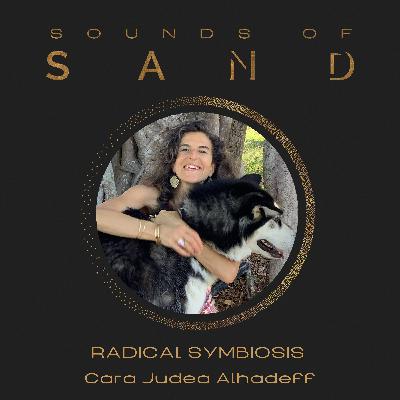
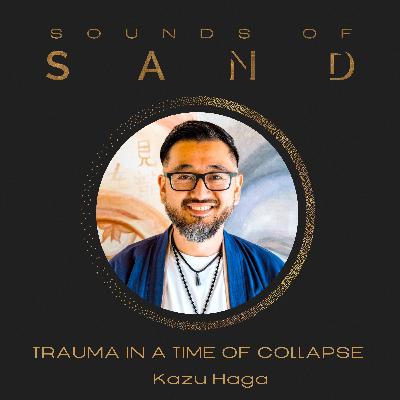
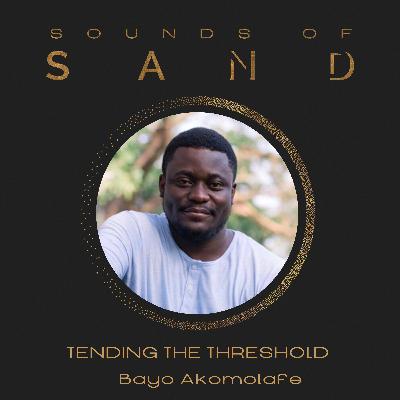
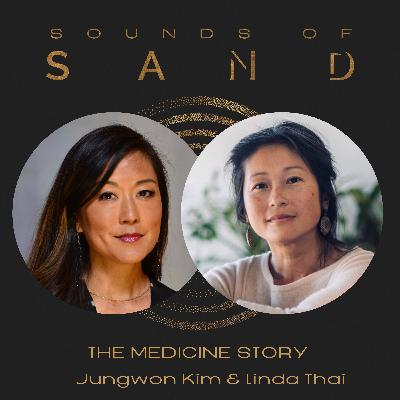

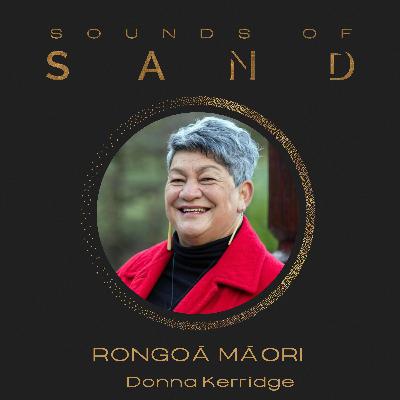
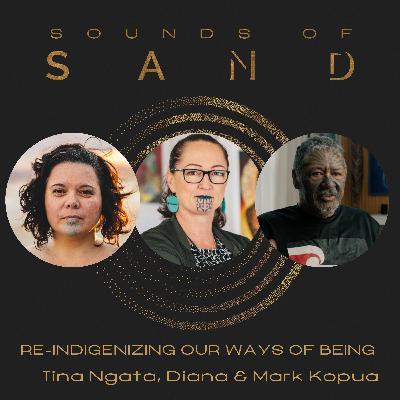
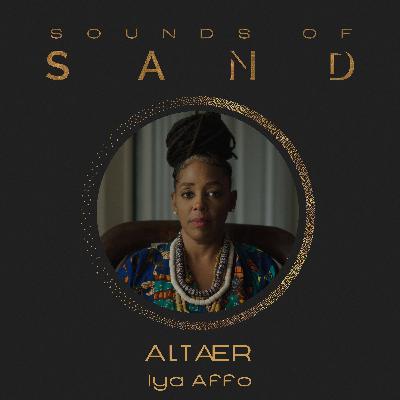
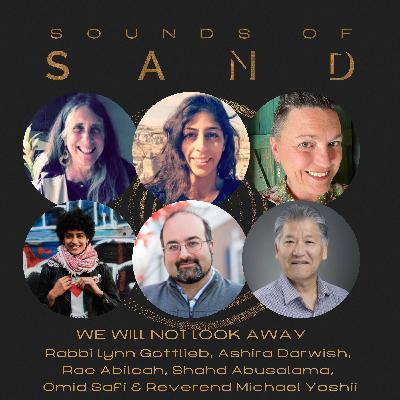
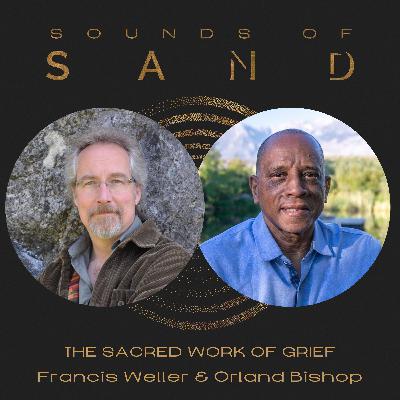
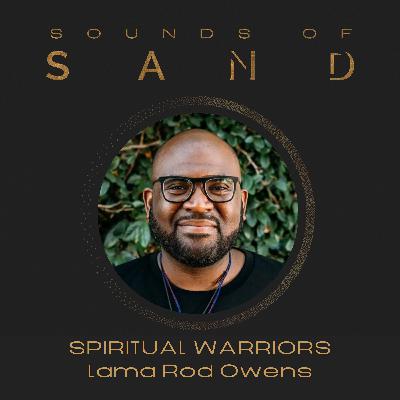

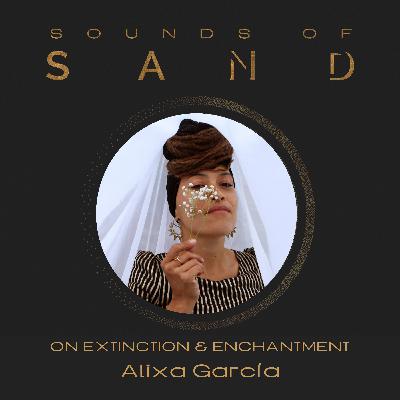
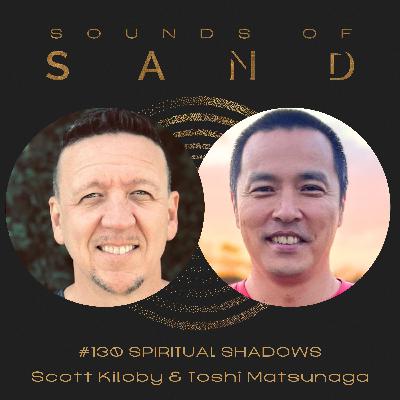
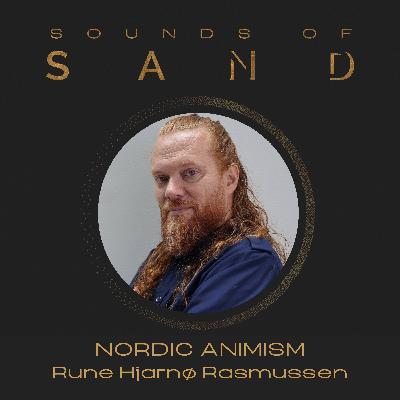
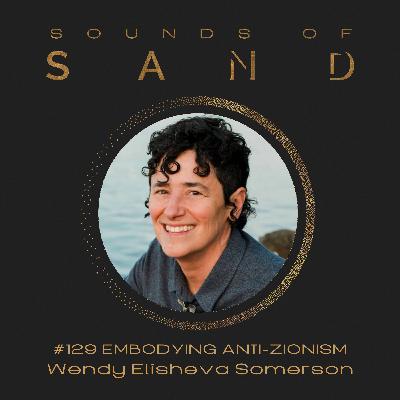

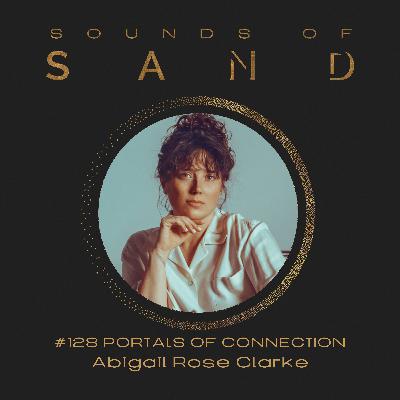
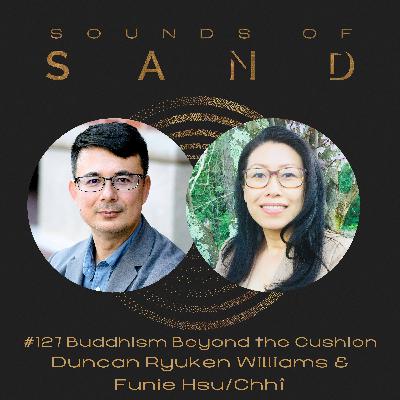
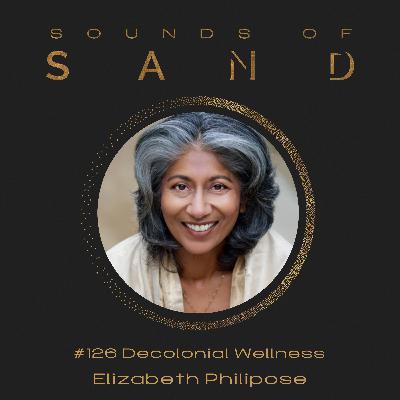



Thank you so much for this Podcast. Lynn and Alnoor are such intelligent beings. Their view is broad and deep. This whole conversation leaves me saying to myself: 'Think, before I take a step forward, backwards, left or right or make an action or even do good.' From what standpoint am I acting? living? helping? doing good? Where is my ego in anything I do? How is my way of thinking, being, perpetuating separatism, division, inequality and destruction. Peace to you all Anne McKeon Co. Tipperary. ,